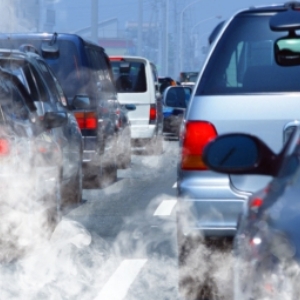
Pregnant women exposed to even low levels of air pollution are more likely to have low birth-weight babies, a new study suggests.
Researchers analysed data from 14 studies that were conducted in 12 European countries and included a total of more than 74 000 women who gave birth between February 1994 and June 2011.
All types of air pollution, especially so-called fine particulate matter, was linked to an increased risk of having a low birth-weight baby and was associated with a smaller average head circumference at birth, the investigators found.
Fine particles come from sources such as traffic fumes and industrial emissions. For every increase of 5 micrograms per cubic meter (mcg/m3) in exposure to fine particulate matter during pregnancy, the risk of having a low birth-weight baby increased by 18%, the study found.
The researchers said this increased risk is present at levels below the existing European Union annual air quality limit of 25 mcg/m3.
The average levels of exposure to fine particulate matter during pregnancy among the women in the study ranged from less than 10 mcg/m3 to nearly 30 mcg/m3.
Fine particulate matter
If levels of exposure to fine particulate matter were reduced to the World Health Organisation's annual average air quality guideline value of 10 mcg/m3, an estimated 22% of cases of low birth weight among full-term babies could be prevented, according to the authors of the study, which was published in the journal The Lancet Respiratory Medicine.
"Our findings suggest that a substantial proportion of cases of low birth weight at term could be prevented in Europe if urban air pollution, particularly fine particulate matter, was reduced," lead author Dr Marie Pedersen, from the Centre for Research in Environmental Epidemiology in Barcelona, Spain, said in a news release.
Although the study found an association between air pollution exposure during pregnancy and low birth weight in offspring, it did not prove cause and effect.
Jonathan Grigg, the author of an accompanying editorial in the journal, noted: "Overall, maternal exposure to traffic-derived particulate matter probably increases vulnerability of their offspring to a wide range of respiratory disorders in both infancy and later life."
If more people were aware of this, it could increase the pressure on policy makers to reduce levels of particulate matter air pollution in cities, said Grigg, of Queen Mary, University of London, in England.
More information
The World Health Organisation has more about air pollution and health.




 Publications
Publications
 Partners
Partners










